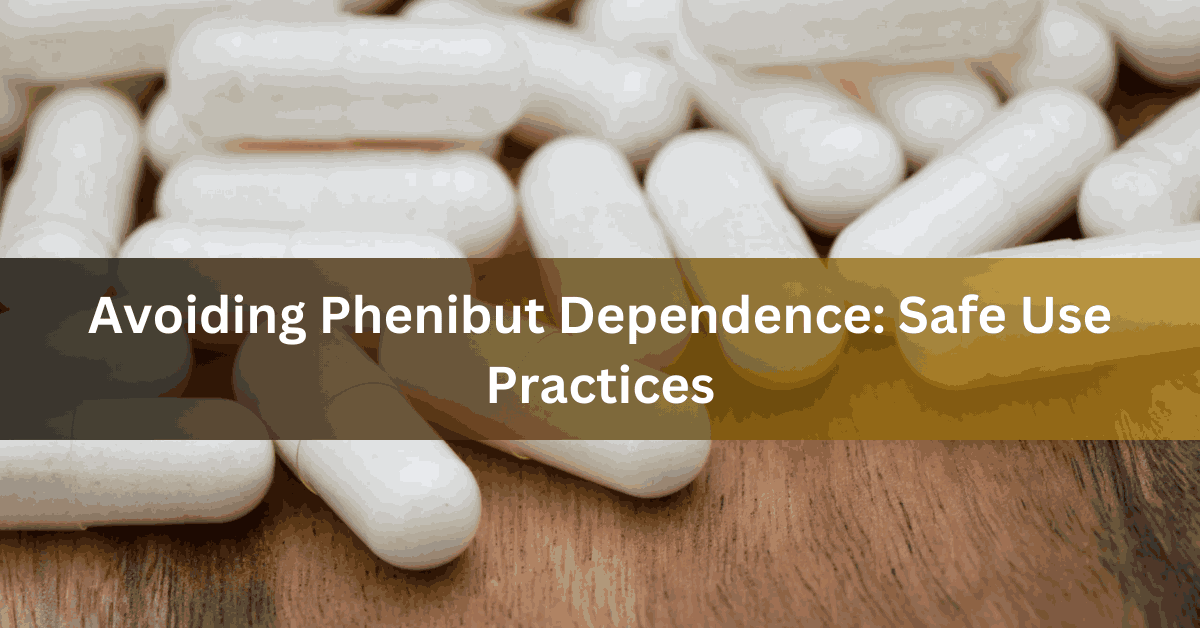Avoiding Phenibut Dependence: Safe Use Practices
In the world of supplements touted for their ability to alleviate anxiety, enhance mood, and improve sleep, one compound stands out for its effectiveness yet also raises concerns due to its potential for dependence. This compound, Phenibut, a GABA analogue developed in the Soviet Union, has gained international attention.
While it offers significant benefits for managing anxiety, stress, and insomnia by mimicking the inhibitory neurotransmitter GABA, its misuse can lead to tolerance, dependence, and challenging withdrawal symptoms.
This comprehensive guide focuses on promoting safe use practices, aiming to help users interested in Phenibut buy options mitigate risks while maximizing the therapeutic benefits of Phenibut.
Understanding the Compound
As a central nervous system depressant, Phenibut’s appeal lies in its potent anxiolytic and nootropic effects. However, its chemical structure and mechanism of action, similar to that of the neurotransmitter GABA, mean that it can significantly impact brain function, necessitating careful management to prevent adverse effects.
Recognizing the Risks
The line between therapeutic use and dependence on Phenibut can be thin, with the risks of tolerance and withdrawal becoming more pronounced with higher dosages and prolonged use. Awareness and adherence to recommended guidelines are crucial for anyone considering this supplement as part of their wellness routine.
Safe Use Guidelines
To navigate the use of Phenibut safely, consider adopting the following practices:
● Start with the Lowest Effective Dose: Finding the minimal dose that yields benefits can help avoid the quick build-up of tolerance.
● Limit Frequency of Use: Regular, especially daily, use is not advisable. Spacing out usage to once or twice a week can prevent dependence.
● Short-Term Use Is Key: This supplement is more suited for occasional rather than continuous use, with a focus on short-term management of symptoms.
● Be Vigilant for Tolerance Signs: Increasing the dosage to achieve the same effects is a clear signal to reassess use and consider taking a break.
Managing Tolerance and Dependence
Effective management strategies include:
● Scheduled Breaks: Periodic abstinence helps reset tolerance levels and reduces the likelihood of developing dependence.
● Alternative Anxiety Management: Exploring non-pharmacological methods like therapy, mindfulness, or physical activity can provide sustainable anxiety relief.
● Professional Consultation: Discussing concerns about dependence or withdrawal with a healthcare provider can lead to a safer tapering strategy.
Emphasizing Responsible Use
Responsible supplementation involves being well-informed about the effects and potential risks and adhering to guidelines for use, especially for those exploring Phenibut buy options, to ensure they make safe choices. It’s essential for users to stay informed about the legal status of their chosen supplements and their potential health implications. Furthermore, engaging in open dialogues with healthcare providers about supplement use can offer personalized advice and support, ensuring that any supplementation is part of a holistic approach to health and well-being.
Withdrawal Symptom Awareness
Withdrawal can manifest in various forms, including rebound anxiety, insomnia, and irritability. Recognizing these symptoms early is essential for managing and minimizing their impact through gradual dose reduction or seeking medical advice.
Conclusion
Phenibut’s dual nature as a therapeutic aid and a substance with potential for misuse underscores the importance of cautious, informed use. By adhering to guidelines prioritizing the lowest effective dose, infrequent use, and being attuned to signs of tolerance, users can enjoy its benefits while minimizing the risks. As with any supplement, especially those acting on the central nervous system, balancing the advantages against the potential for dependence requires vigilance, responsibility, and a proactive approach to wellness.



